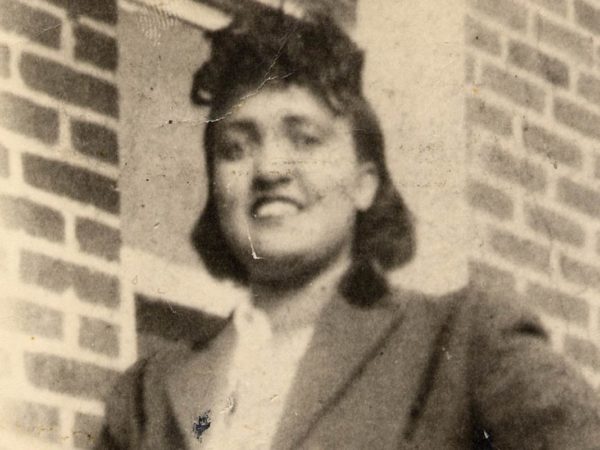Henrietta Lacks Descendants Announce Plan to Sue Pharmaceutical Companies Continuing to Use Her ‘HeLa’ Cells Without Their Permission
Decades ago, Henrietta Lacks’ cells, unbeknownst to her, were taken and used for medical research, a they still are to this day. Now her family wants pharmaceutical companies to pay up if they’re going to continue, and they’ve hired civil rights attorney Ben Crump to ensure it happens.
In a statement to the Baltimore Sun earlier on Thursday, July 29, Crump, who has represented the families of slain Black men and women, often at the hands of law enforcement, announced that he and his team would be going after as many as 100 drug companies.
As there were no policies requiring consent from cell donors, scientists were able to collect and use Henrietta Lacks’ cells without permission. (Harvard University Archives)
This comes on behalf of more than a dozen of Lacks’ descendants, including Lacks’ eldest surviving son, Lawrence Lacks Sr. and several great-grandchildren. Crump and the family’s other lawyer, Christopher Seeger, are looking to formally file their first legal claim later this fall on Oct. 4, the day Lacks died 70 years ago.
“The American pharmaceutical community has a shameful history of profiting off research at the expense of Black people without their knowledge, consent, or benefit, leading to mass profits for pharmaceutical companies from our illnesses and our very bodies,” Crump said. “There is no clearer example of this than Henrietta Lacks and the seemingly endless manipulation of her genetic material. The pharmaceutical companies have been unjustly enriched by this unethical taking of her cells, while Henrietta Lacks’ family has never been afforded any equity.”
Seeger, who’s helped win billion-dollar settlements against companies such as Volkswagen, said that their team is tediously researching any company “that has made a product that has either used the cells to build their products or commercialize it in some way or develop it, so that’s a lot of companies.”
The Maryland native’s cells, dubbed “HeLa” cells, are somewhat of a medical wonder, being the first “immortalized line” to grow outside the body in a glass tube and not perish within days as others had at that time. Lacks’ unauthorized contribution to scientific research led to advances in vaccines, cancer treatments, and in vitro fertilization, subsequently saving countless lives.
In 1950, while giving birth to her fifth child 1950 at Johns Hopkins Hospital, it was discovered that the then-31-year-old had an aggressive form of cervical cancer. Doctors took her cells with neither her nor her family’s permission.
However, not only did Lacks’ cell line save lives, her case became a foundation for the ethical standard for informed patient consent in the medical community. Known as the Common Rule, doctors are required to inform patients if they would be used in any research capacity and are required to assign them a code number to establish anonymity.
The family had previously been engulfed in a battle with Johns Hopkins University over acquiring their loved one’s cells. Over the years, reports have claimed that the institution came to an agreement with several members of the family that permitted them to use the cells. However, Lacks Sr., who claims to be the estate’s executor, contested that those members had no merit to make such decisions.
The university maintains that there were no guidelines regarding consent or use at the time, and Johns Hopkins has never patented her cell line, therefore, it didn’t own the rights to it and make a profit from it. Lacks Sr. has not abandoned his fight with the university despite the recent announcement of the plan to pursue claims against pharmaceutical companies.

